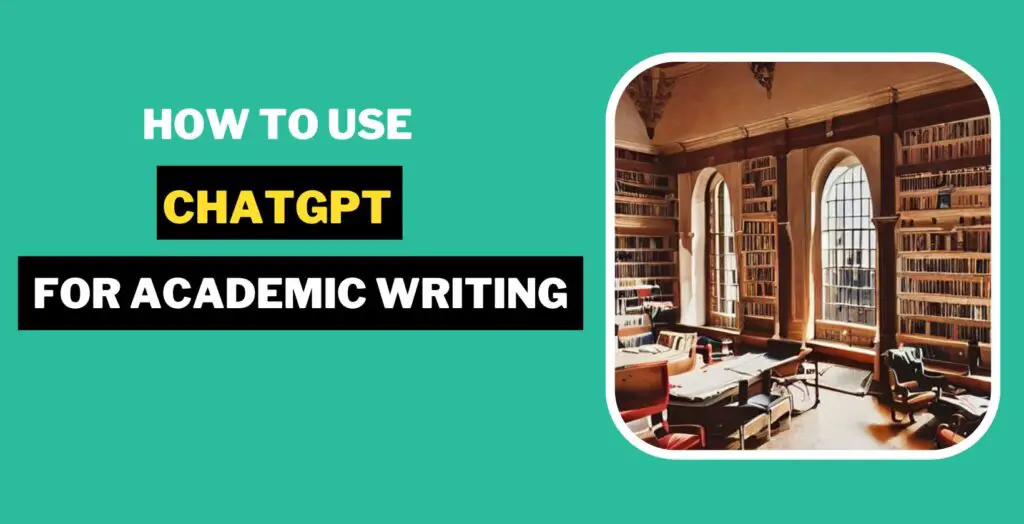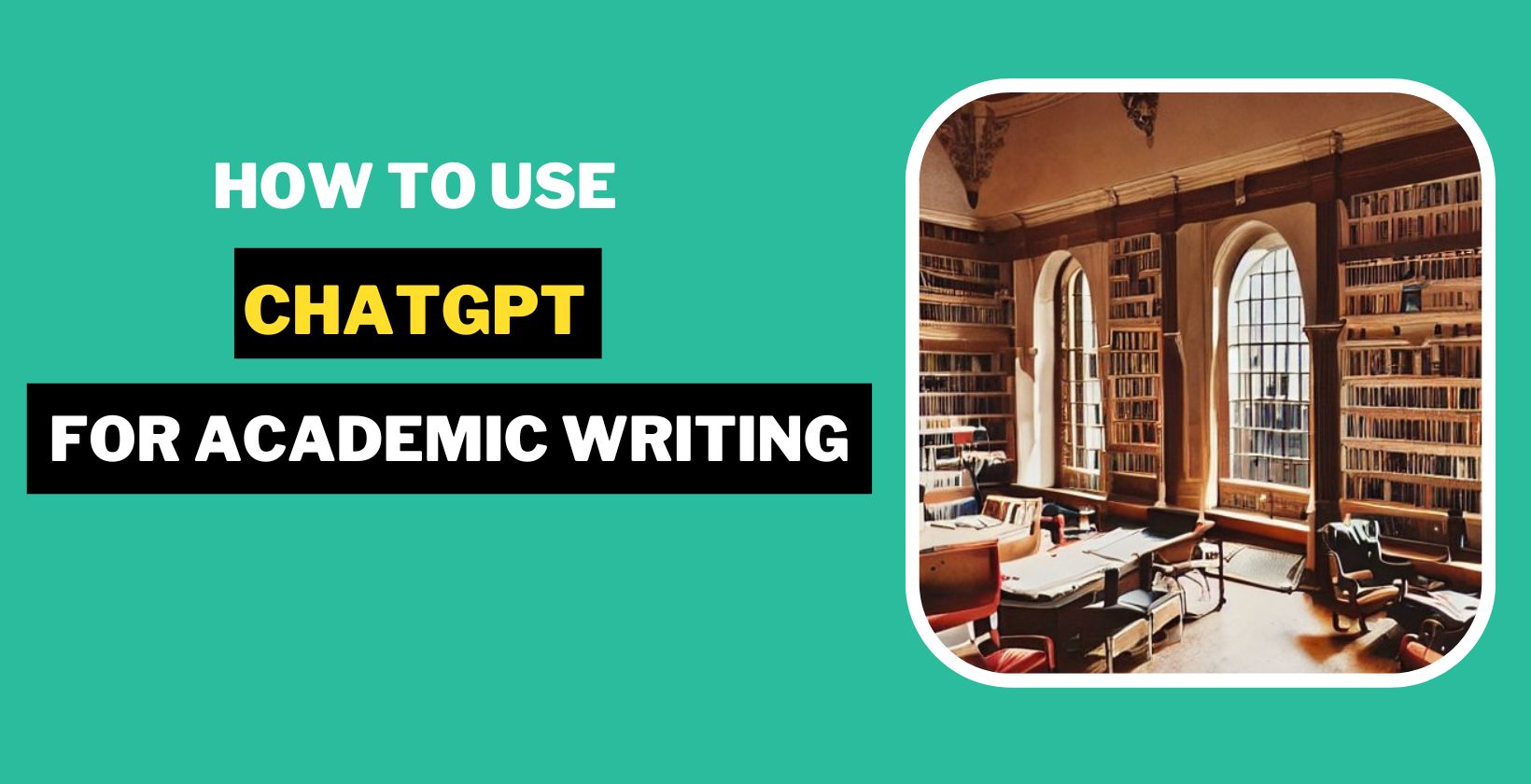Ready to write academic research using ChatGPT? or Don’t know how to use ChatGPT effectively for academic wriing? I will explain process in details.
Academic writing plays a crucial role in the education system, requiring students and scholars to express their ideas and research effectively.
With the advent of artificial intelligence, tools like ChatGPT have emerged, offering assistance to writers in various domains.

Through this post, I will explore the potential of using ChatGPT for academic writing and provide valuable tips for leveraging its capabilities effectively.
What is ChatGPT?
ChatGPT is an advanced language model developed by OpenAI. It employs a deep learning algorithm to generate human-like text based on the provided input.
It has been trained on a massive corpus of data and can produce coherent and contextually relevant responses.
Understanding Academic Writing
Academic writing refers to the specific style of writing used in scholarly contexts, such as research papers, essays, theses, and dissertations. It requires precision, clarity, and adherence to specific formatting and citation guidelines.
Tips for Using ChatGPT for Academic Writing
Clearly Define Your Requirements
When using academic writing ChatGPT prompt, it is essential to provide clear instructions and specify your requirements.
Clearly define the topic, the purpose of the writing, and any specific formatting or citation styles you need to follow. This helps ChatGPT understand your expectations and generate more relevant and accurate content.
Provide Sufficient Context
To ensure that ChatGPT comprehends your request accurately, provide sufficient context about the topic and any specific subtopics you want to cover.
Share relevant background information, key research questions, or any supporting materials that can guide the model in generating suitable responses.
Review and Edit the Generated Content
While ChatGPT can assist in generating content, it is crucial to review and edit the text it produces. While the model is highly proficient, it may occasionally generate sentences or paragraphs that require refinement.
Ensure the generated content aligns with your intended message, maintains a coherent flow, and adheres to academic standards.
Use Citations and References
When using information provided by ChatGPT in your academic writing, remember to cite and reference the sources appropriately.
Although ChatGPT can provide summaries or references, it is your responsibility as the writer to verify the accuracy and credibility of the information and attribute it correctly to avoid plagiarism.
Verify Accuracy and Originality
While ChatGPT is a powerful tool, it is essential to verify the accuracy and originality of the generated content.
This video will help you to find the Right References for Literature when you get incorrect references of ChatGPT:
Cross-check the information provided by ChatGPT with trusted academic sources and ensure that the content is not plagiarized. Use plagiarism detection tools to ensure the authenticity of your work.
Limitations of Using ChatGPT for Academic Writing
While ChatGPT is a remarkable tool for academic writing, it has certain limitations that you should be aware of:
- Lack of Domain Expertise: ChatGPT may not possess specialized knowledge in specific academic disciplines. Therefore, for highly technical subjects, it is advisable to consult subject matter experts or trusted academic sources.
- Potential Errors: Although ChatGPT strives to generate accurate content, it can occasionally produce errors or inaccuracies. It is crucial to review and verify the information before incorporating it into your academic work.
- Overreliance on AI: While ChatGPT can be a valuable aid, it is important not to over-rely on it. Remember that academic writing requires critical thinking, analysis, and a personal understanding of the subject matter.
FAQs
Can ChatGPT replace human academic writers?
While ChatGPT can be a useful tool, it cannot entirely replace human academic writers. It should be seen as a complementary resource to assist with various writing tasks.
Is the content generated by ChatGPT plagiarism-free?
ChatGPT generates content based on the input and data it has been trained on. It is crucial to review and verify the generated content for originality and attribute any sourced information properly to avoid plagiarism.
How does ChatGPT handle technical subjects?
ChatGPT may not possess specialized knowledge in technical subjects. It is advisable to consult subject matter experts or trusted academic sources for accurate and comprehensive information in such cases.
How can I ensure the accuracy of information generated by ChatGPT?
ChatGPT generates responses based on patterns and information it has learned from its training data. It’s important to critically evaluate and validate the information provided by ChatGPT using reliable sources and scholarly literature. Avoid relying solely on ChatGPT for factual accuracy.
Conclusion
Using ChatGPT for academic writing offers numerous advantages, including idea generation, improved writing style, research assistance, overcoming writer’s block, and increased productivity.
If you follow the tips that I provide and be aware of its limitations, you can harness the power of ChatGPT to enhance your academic writing process.


